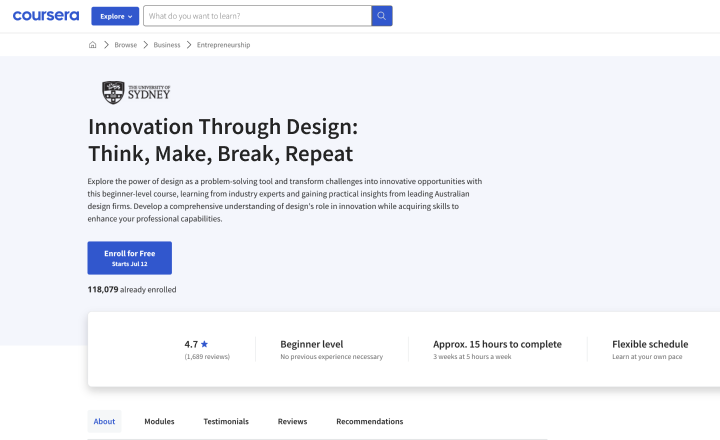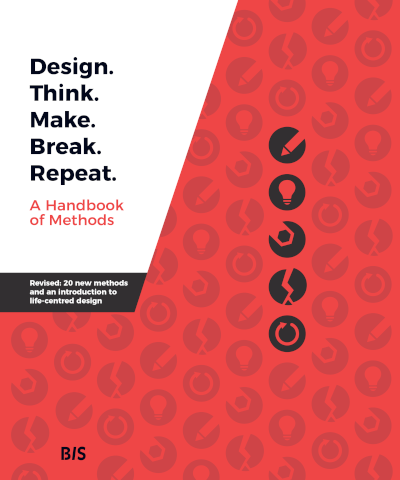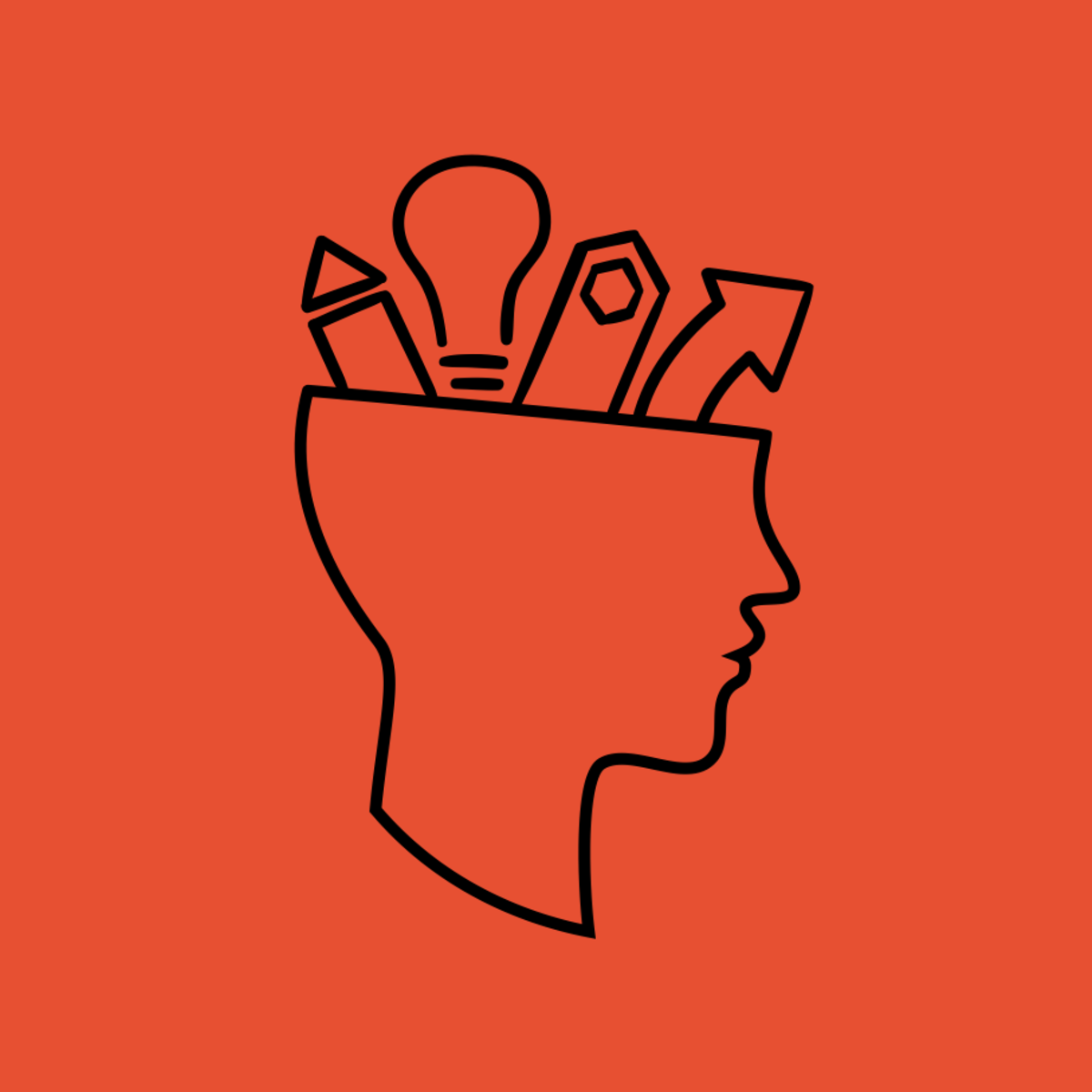The handbook
The handbook provides an introduction to the evolution of design as a way of thinking and achieving a competitive advantage across a range of sectors. It documents 80 methods that cover all stages of a design process, providing actionable guidance for applying the methods in workshops, education, research and practice.
Book and toolkit
80 methods
24 templates
7 case studies
What people are saying
The online courses
Join more than 130,000 learners on a journey of discovery. Hear from the book authors and industry practitioners in these self-paced online courses.
Innovation through Design:
Think, Make, Break, Repeat
This course is based on the book Design Think Make Break Repeat and structured in five modules. Through videos and exercises, some of the authors of the book demonstrate how to apply the think-make-break-repeat process to any project. The content is brought to life through a mini series exclusively produced for the online course in which designers from Atlassian, Design+Industry and Wunderman Bienalto share their insights.
Creative Thinking and Innovation
This course explores how the success of Pixar and Nobel Prizes winners is linked to creative thinking and innovation. It also features industry case studies with industry experts from IBM and Google, who share how they use creativity and innovation in their work – from designing sustainability dashboards to using AI to protect the Great Barrier Reef.
Course contents
120,000 enrolled
28 course hours
Enrol free
What people are saying
Methods toolkit
Resources. Exercises. Templates. Gratis.
You can find free resources for the 80 methods included in our book below. Resources include printable templates, materials for running design exercises and slides for using the methods in a class or workshop setting.
About
The handbook introduces the reader to the changing role of design as a way of thinking and a framework for solving complex problems and achieving systemic change. It documents 80 methods that cover all stages of a design process, providing actionable guidance for applying the methods across a range of projects.
The methods are complemented by seven case studies to demonstrate their application in different domains, from designing interfaces for autonomous vehicles to addressing health and wellbeing.
Learn more →


